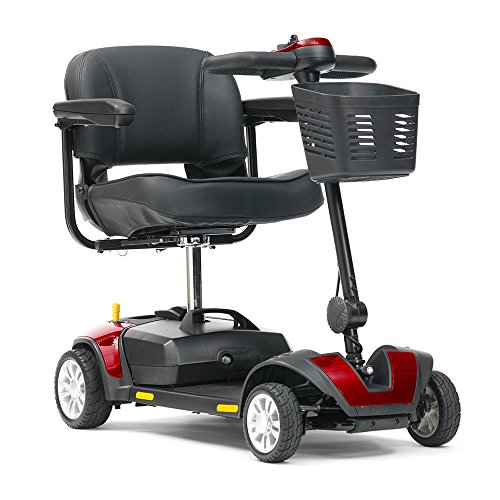You'll Be Unable To Guess Scooter On Pavement Uk's Tricks
Deangelo
2024.07.23 04:04
41
0
본문
 It's Not Illegal to Ride a Scooter on Pavement in the UK
It's Not Illegal to Ride a Scooter on Pavement in the UKIt is not illegal to ride your scooter on the sidewalk, but you must be considerate of other users. Remember that drivers of cars or trucks might not consider you to be on the sidewalk.
In the UK it is legal to use e-scooters that are rental on public roads (except motorways) and in cycle lanes. It's not legal to use them on sidewalks.
Privately owned E-scooters owned by private owners
The legal status of privately owned e-scooters is a subject of debate in the UK. The government is contemplating creating a new category for vehicles and regulating it. The government could improve road safety for users and other road users. It also allows the government to address concerns regarding the fire danger of e-scooters and other potential hazards.
It is currently illegal to ride an e-scooter that is owned by a private individual on public roads, bike lanes, or sidewalks. However, you are able to use a private e-scooter on pavement Uk on private land with the permission of the owner. You can also ride an e-scooter rental in areas that have a trial rental program. These trials are intended to test whether escooters could be used as a routine mode of transport for short journeys. These trials will prove that well-managed rental programs can be a part of a low carbon transport mix.
Electric scooters were illegally used on UK pavements and public roads until now. They are considered to be a kind of motor vehicle and need to be registered as well as insured and licensed. However, the laws on scooters that are electronic are not clear, and the government has not clarified the rules. Many people are riding these scooters with no insurance or proper registration. This has led to serious injuries, like a woman who recently broke her leg after being hit by an e-scooter on the pavement.
Although the government is attempting to solve these issues, it may be difficult to pass legislation prior to the next session of parliament. The law will not be introduced until the spring 2022 general elections. The law will not change until spring 2022, therefore e-scooter owners should be extremely cautious.
Although e-scooters are becoming more popular in the UK but they are not allowed on public roads or sidewalks. E-scooters belong to the same category as motor vehicles and are subject to the same rules and regulations. They cannot comply with the tax, insurance and registration requirements due to the fact that they don't have rear lights or indicators.
Rental e-scooters
In the UK it is legal to rent e-scooters for trials sponsored by the government and to use them on roads, cycle lanes and pavements (except motorways). It is illegal to ride on private property, or on public roads outside of the trial area. The use of private e-scooters in public land, such as beaches and parks, is also illegal. The government has urged local authorities to cooperate with rental companies who rent e-scooters to promote responsible use of scooters.
Renting electric scooters is not just fun, but it is also eco-friendly. They are also cheaper than cars or buses. However, there are a number of issues to be faced when implementing this new form of travel. The lack of infrastructure and safety issues are among the biggest concerns. The use of private e -scooters can also result in less space for walking or cycling. Many of the largest e-scooter companies are European companies. Voi, for example is located in Sweden, and operates in a variety of major cities. Other companies, like GoBike have British headquarters and operate from various locations throughout London.
The law currently states that if you are caught riding an electric scooter outside of a designated trial area, on a public road, or in a space that is set aside for pedestrians (including pavements), cyclists, or horse riders or cyclists, you could face fines of up to PS300. The reason is that e-scooters are considered motor vehicles and require a driving license as well as insurance.
The committee on transport recommended that the government adopt an act that would let electric scooters to be used on public roads and other spaces. If the legislation passes the e-scooters could compete with cars and other types of transportation. Local authorities must, in the meantime examine ways to limit illegal e-scooter use outside of trials. These include improved training, communication or the introduction of a three strike rule. This would ensure that users are adhering to the rules of the trial and reduce the risk to others who use the same road.
Pedestrians
Respecting pedestrians is important. They are a vital part of the traffic system. This is especially important in the town centres, where there are many busy pavements. It's also important to use the right speed limit and be extra cautious when you are navigating intersections. Also, make sure you use kerbs that are dropped whenever you can, and that your scooter has adequate brakes on the front and back.
The legality of scooters being ridden on the pavement remains an issue of debate. The Highway Code states that "carriages of any kind should mobility scooters be on the pavement not be ridden on any footpath or area of any road made or designated for pedestrian use." However, the definition isn't quite clear and there's not a specific rule that applies to scooters. There is no law in England that specifically says that scooters cannot be ridden on the pavement. However, local byelaws may stipulate otherwise.
It's not against the law to use a motorized scooter on paved surfaces but you should be aware of others who might also be using one. This is particularly important in the event that you're riding near pedestrians, because scooters can be extremely quiet and hard to hear. Be wary of driving on the pavement mobility scooter with lithium battery if you have children with you, as they may not be as attentive as adults.
In the past, cyclists could ride on sidewalks that was regarded as an appropriate footpath for pedestrians. Since 1888, when the Highway Act 1835 Section 72 was modified, it is understood to mean that vehicles like bicycles cannot be used on pavements. This is because the purpose of pavements is to allow for walking.
The latest research suggests that people are more likely to use scooters to avoid traffic congestion and the high cost of public transport. Scooters could help reduce carbon emissions in cities and help create an active, healthier life for all. It is essential to promote and support this form of transport and build secure infrastructure. This can be achieved by low motor traffic levels with reduced speeds, as well as dedicated space for cycling.
Traffic laws
Visitors to the UK might be unable to understand the traffic laws. There are many different rules and regulations that must be followed in order to avoid legal penalties. Knowing these laws is crucial before you travel to UK. This will allow you to avoid fines and stay safe. It is important to obey the rules of road, whether you are driving or riding on an electric scooter.
One of the most common mistakes that drivers make in the UK is not checking their speed limit. In general, the speed allowed in the UK is 70 MPH on motorways and dual carriageways and 30 MPH for roads that are not motorway. If you're not told otherwise, you should never exceed this limit. It is a dangerous and illegal act that could put you at risk of an accident of serious severity.
Another mistake to avoid is to ignore the road signs and markings that are on the road. You should know how to read road signs in British English before you go to the UK. Road markings can be different, such as the double white lines which indicate an area where you cannot pass. It is also essential to be aware of the driving rules of the UK. This includes speed limits, lane markings, and zebra crosses.
The manner in which a scooter is used will determine if it is legal to use on pavements. Private electric scooters are not permitted, with the exception of those rented under government-endorsed trials, aren't allowed on public roads or bike paths. If a person uses an electric scooter to navigate traffic or to reach their goal quickly on the sidewalk it could be in violation of the law.
Certain regions of the country have updated laws. In England and Wales it is illegal to ride a scooter on the road. In France and Austria for example, a 50cc scooter may be ridden without a licence on the road. In these countries however, it's still against the law to drive a motorbike on the sidewalk.




댓글목록 0
댓글 포인트 안내